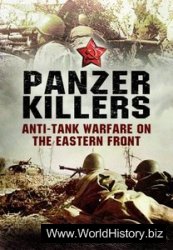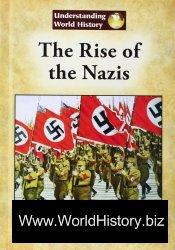When reading my Bible one night I came across the following in Jeremiah:
From the prophet even unto the priest every one dealeth falsely saying, Peace, peace - when
There is no peace.
These words were probably written nearly 3,000 years ago; they apply equally today. Many who read this book will have had their fill of war, and know how tempting it is to paper over the cracks in the concord of the world.
Something seems to have gone wrong in the world in which we live. Notwithstanding the progress in civilization, and the longing for peace in the minds of all decent people over the past 2,000 years or more, mankind has not been able to prevent the twentieth century from becoming the bloodiest and most turbulent period in recorded history. During the years of the Nazi regime in Germany things happened which could not find a parallel in the most debased days of the Roman or Mongol empires, crimes were committed which most people could not imagine — unless they had seen a place like Belsen, which I entered on the day of its liberation by my troops in April 1945. The wholesale liquidation of civilians was unprecedented.
A study of the German assault on Russia which began in June 1941 reveals scenes where ‘the septic violence of German Nazism festered openly’. Mass murder, deportations, deliberate starvation in prisoner-of-war cages, the burning alive of school children, target practice on civilian hospitals - such atrocities were common under the warlike passions of German brutality in the Russian-German conflict.
All these things were the responsibility of one evil man - Hitler. Millions starved and died while he and his followers feasted. He parted the wife from her husband, the maid from her lover, the child from its parents. If he had lived he could never have given back what he had taken from those he had so cruelly wronged - years of life and health and happiness, wives and children, loved ones and friends. If he had had ten thousand lives they could not atone, even though each was dragged out to the bitter end in the misery which he meted out to others. The harnessing of the whole German national life to war ended, as it must, in the complete destruction of the vanquished state; and the problem then arose of feeding a starving nation, as I know very well because that problem became my responsibility in the British zone of 20 million Germans. Things were much the same in the Far East with the Japanese - whose brutality equalled that of the Germans.
Is it possible that such things could happen again? Can others such as Hitler arise? Are we to reach the conclusion that modern war between nations is merely a reversion to total barbarism? These questions will have to be faced by responsible political leaders. My own view is that a study of warfare over the ages, with the many interlocking political and economic elements which erupt in armed conflict, will help to show us what to do to prevent it and find the answer we have not yet got.
We know that on the physical and material plane the keys of peace are in the hands of strength; the strong man armed keeps his goods in peace. But on the spiritual plane there is a stronger than he. The big battalions do not always win. Great occupying armies cannot for ever hold in check that which moves in the rninds of people. The study of warfare brings to light spiritual values significant for the future.
What of the future? This is in the hands of youth, and these hands are at present unsteady. Youth is saying: ‘Our fathers have made such a mess of things, we must break away and go on our own and do better.’
What better to do, they do not know; they are all at sea. They tend to move towards materialism - ‘Gather ye rose-buds while ye may’ - and think that devotion to peace as the condition of a pleasant, happy life was what their fathers lacked. But their peace-loving fathers fought for freedom and justice, without which the peace of cowed and enslaved peoples would have been hell on earth. The peace we now enjoy is the peace of victory over the beast in men, and this victory will not survive if the virtues which gained and sustain it are lost. What worth is peace without freedom, or freedom without justice between one man and another? The ideal of peace must not walk too closely with the temptress to a slack and easy life. We must marry the ideal of peace to the practice of virtue.
A nation must stand for something of spiritual and not only material value, and the key to the decline of the spirit is in religion. There is always a choice to be made, and for the British people I beUeve the Kingdom of God to be the right choice, and that those who choose it will never lack support - both human and divine.
I wrote this in my Memoirs:
I do not believe that today a commander can inspire great armies, or single units, or even individual men, unless he has a proper sense of religious truth. . . All leadership is based on the spiritual quality, the power to inspire others to follow.
But this lead will be of no avail unless others are inspired to accept it. Much good as well as much evil is released in war. When men are inspired to offer themselves to a high and noble cause, the hardships of war draw out of them their best qualities — comradeship, endurance, courage, self-sacrifice, willingness to die. This was expressed in a poem found in the Western Desert during the onward march of the Eighth Army after Alamein:
Help me, O God, when Death is near To mock the haggard face of fear.
That when I fall - if fall I must - My soul may triumph in the Dust.
To that spirit I have unveiled many memorials. When I unveiled the Alamein Memorial in the Western Desert of Egypt in October 1954 and gazed over the scene, the crosses
Standing row after row, each one a life dear to someone at home, I could not but think that there is no merit in needless loss of life - indeed, nothing but shame and folly. The lives of his men should be precious to any commander in battle; they are not to be risked without cause, nor used when other means will serve.
But there are times in war when men must do a hazardous job, when a position must be held or taken whatever the cost, and when success and a nation’s fate depend on the courage, determination and tenacity of officers and men. Then those who set duty before self give their lives to see the task committed to them through to its completion; they win the day and, in our Christian faith, a higher honour than mortal man can give. It is a free choice. And for the immortal virtue of that choice, the crosses stand - whatever the rehgion, faith, or form of worship.
Through the mists of years, through the gulfs of twilight, could we but listen hard enough, we might catch some message of hope and encouragement from those who gave their lives - a message which would help us to create a better world than that in which they lived:
We are the Dead............
To you from failing hands we throw
The torch; be yours to hold it high.
If ye break faith with us who die,
We shall not sleep...........
There must be no broken faith with the torch of Justice and Freedom which they threw to us.
The true soldier is the enemy of the beast in man and of none other; and it is a soldier’s hope that one day will come a golden sunset when the Last Post will be sounded over enmity and strife, and a glorious sunrise when Reveille will waken the nations of the world to an era of goodwill and peace.




 World History
World History









